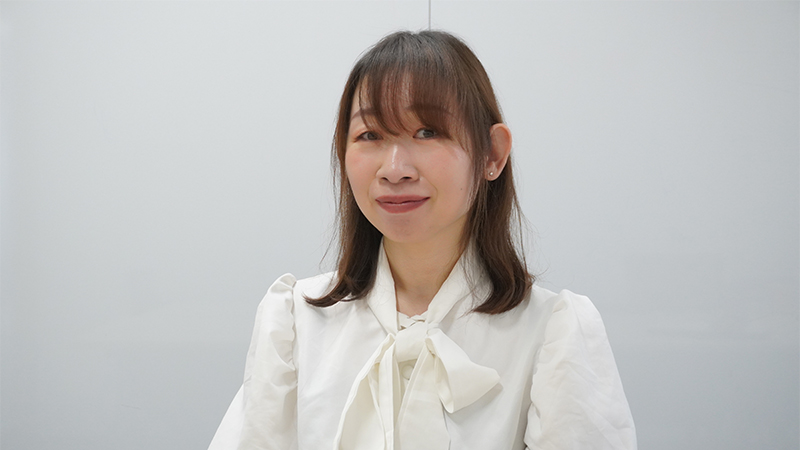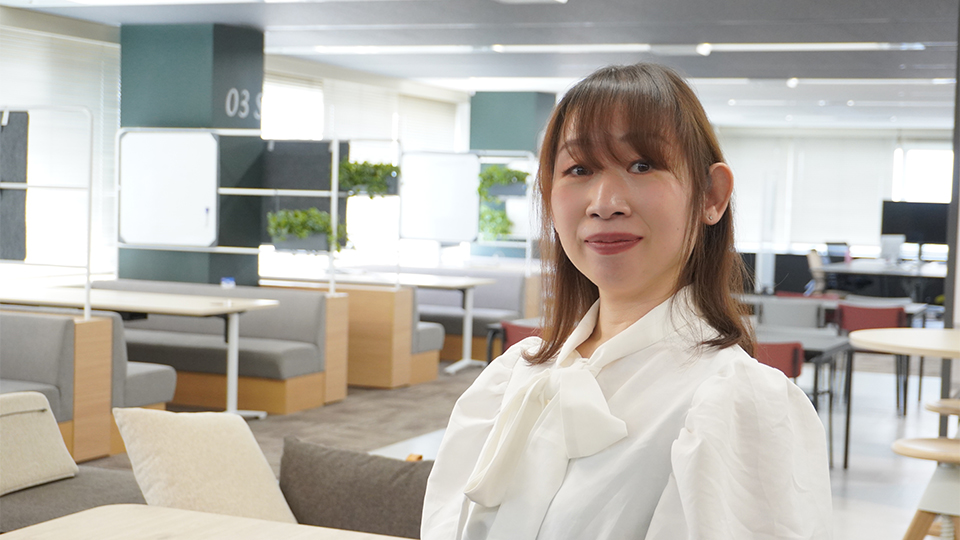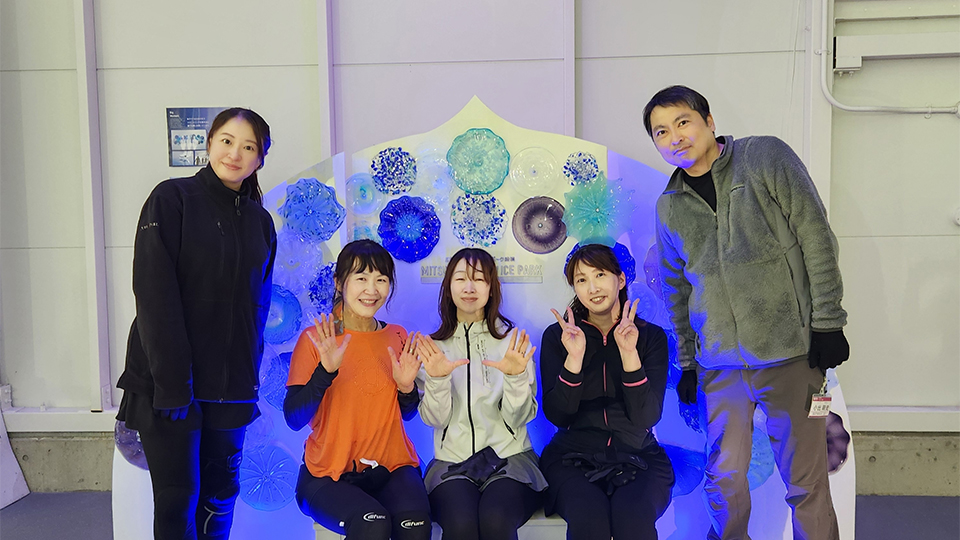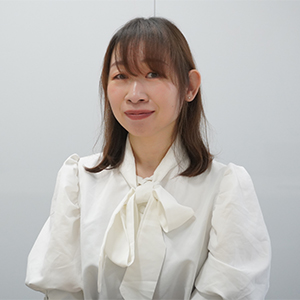Work-Life Balance! Full-time work and parenting, as well as focusing on a PhD in drug discovery
Mutsuyo WadaArtificial Intelligence Laboratory

Combining biology and computer technology for new discoveries
I have always been curious from a young age, with a keen interest in new things. I majored in biosciences at university, because I wanted to understand the mechanisms of living organisms from a scientific perspective and conduct research that could be applied in practical ways. At that time, comprehensive genetic research was advancing globally, revealing that genetic mutations could potentially cause specific diseases. With the rise of gene analysis, I became interested in research related to genes and the proteins they produce. At university, I analyzed genes and proteins using cells and computers. Even when observing cells, I often used computers for analysis, but the process involved a lot of manual work and was quite challenging. I believed that by further developing computer technology, it would be possible to accelerate research by eliminating the need to manually count each cell displayed on the screen. From these experiences, I aspired to leverage my expertise in genes and proteins and utilize cutting-edge computer technology to contribute to work that benefits people.

So immersed in drug discovery research that I forgot to eat and sleep!
After joining the company, I participated in many research projects related to drug discovery, gaining valuable experience along the way. Among these, the most memorable project was the collaborative research on anti-cancer drug design conducted by a pharmaceutical company, a university, and Fujitsu (*1). The most enjoyable yet challenging moments were when the entire team deliberated on which compounds to synthesize. One of the compounds we designed using computer simulations was criticized by a pharmaceutical company representative, saying, "It doesn't look like a drug." This meant the compound was likely to be easily broken down in the human body, had low efficacy, or was difficult to synthesize. Understanding these specialized expressions and identifying each problem to overcome them was a daily learning process.
The aim of this collaborative research was to create compounds expected to be effective against cancer. The compounds designed through simulations needed to be synthesized and tested by the pharmaceutical company to confirm their efficacy. If the synthesis was straightforward, results could be obtained quickly, but it still took about three weeks. I felt very apologetic when a compound predicted to be highly effective against cancer in simulations turned out to be different upon actual synthesis and testing. It was a continuous process of patiently verifying hypotheses, and I was overjoyed when we finally created a compound that showed high efficacy against cancer. This experience made me realize the importance of consistently achieving such results. The success of this collaborative research was not due to the knowledge of any single individual but the collective wisdom of the members from three highly specialized organizations. Acknowledging each other's areas of expertise and working together to resolve our collective doubts, I felt a deep sense of fulfillment and purpose as I became so engrossed in the research that I forgot to eat and sleep.
Insights gained from my children's self-development
For 13 years, until my youngest child graduated from elementary school, I worked on a reduced-hour schedule to care for my children. I am very grateful to my supervisor for selecting me as the leader of a collaborative research project despite my restricted hours. This wise individual recognized my expertise in biology and my research achievements, and always provided guidance when needed. Outside of work, I dedicated all my time to raising my children, so I would often say that my hobby was parenting. However, I learned a great deal from my children. They grow by repeatedly falling and getting back up until they can stand, walk, and eventually run. They fearlessly try new activities, regardless of the risk of failure. Observing their growth sparked a desire in me to learn something new from scratch, so three years ago, I started figure skating. Now, I can do jumps and spins and enjoy practicing with my friends.

Realizing my dream - undertaking a doctoral program, and striving for the development of drugs tailored to each individual
Since April this year, I have been studying pharmaceutical physical chemistry in the doctoral program at graduate school, utilizing the company's support program for working professionals pursuing a doctorate. I have had the dream of obtaining a doctorate since a young age, but due to other priorities, it remained unrealized. Rather than missing out on my ambition, I decided to enroll in graduate school. Through my studies at the graduate level, I have been able to delve deeper into research from a more academic perspective and contemplate challenges with a long-term view. Pursuing a doctorate while working is incredibly challenging, but engaging in research within the constraints of tight timeframes has made me even more determined to conduct research.
My dream is to develop technology to design personalized drug therapies using computers (*2). The relationship between drugs and proteins is complex, and in particular, the way proteins move can affect how drugs work. By understanding these differences, my focus is to dig deeper into disease mechanisms, explain them and develop drugs with minimal side effects and heightened effectiveness (drugs that work quickly with minimal dosage).
Messages from colleagues
Mutsuyo is a rare researcher, who possesses skills in both the drug discovery and biological fields, which are essential for advancing drug discovery AI research. With Mutsuyo joining the team, it became possible to bridge these two fields, leading to the realization of groundbreaking AI in drug discovery. (Takashi Kato, Artificial Intelligence Laboratory)
Upon joining the company, Mutsuyo worked in the system engineer department, engaging in active discussions with research leaders while stationed at our clients' laboratories. Due to her myriad commitments, she was an early pioneer of the remote working concept, even during the trial phase of the system – something that has now become the norm for many. I look forward to seeing her continue to follow her dreams with her inherent combination of embracing challenges and incessant curiosity. (Tatsuhiro Yamashita, Healthcare Business Unit, Fujitsu Japan Limited)

Titles, numerical values, and proper nouns in this document are those reported when this interview was made.




